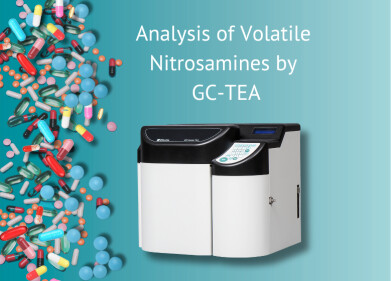Gas chromatography
How is Gas Chromatography Used for Drug Testing?
May 08 2022
With so many uses for gas chromatography, it’s easy to forget about the separation technique’s contribution to drug testing. Gas chromatography has many uses and its applications in the drug testing industry range from forensic science to sports. Data obtained from gas chromatography analysis can be an essential part of a court case, whether in a criminal court or an athlete facing a panel. Read on to find out how gas chromatography is used for drug testing.
Forensic sciences
Any kind of chemical analysis technique is helpful in the field of forensic science, and gas chromatography is no exception. The non-destructive separation technique helps analyse bodily fluids, such as blood, to determine whether someone had drugs in their bloodstream as they escaped the scene of a crime or car accident. That can contribute to the court’s verdict on their guilt or innocence.
Forensic scientists also use gas chromatography to analyse the bodily fluids of victims. In this case, it can tell them whether the victim has consumed drugs, alcohol or poisons during the event leading up to their injury or death.
Digging a little deeper, scientists can also obtain information on how long ago somebody consumed a specific substance based on the gas chromatography results. If chemists know how quickly a person’s metabolism will break down a particular substance, for instance, they may be able to tell how long that substance has been in the victim’s body.
In this case, gas chromatography uses blood plasma to determine drug metabolism, as discussed in ‘A Comparison of Four Different Plasma Sources for Phospholipid Removal, Recovery and Reproducibility using a Protein and Phospholipid Removal 96 Well Plate’.
Sports testing and the law
We’re all familiar with drug testing within the world of sport, as we’re constantly exposed to headlines about famous or high-profile sportspeople who have tested positive for illegal substances. ‘Illegal’ in the context of sport doesn’t necessarily mean that the drug or chemical is unlawful. Instead, it means that the particular compound is banned from the competition you’re competing in.
The Olympics and the Winter Olympics, in particular, often call out athletes for having drugs in their blood or urine samples. Gas chromatography breaks down the athlete's sample into component parts, so it’s easy to tell which substances the athlete has consumed and in what quantity.
The data scientists obtain using gas chromatography on bodily fluids can be used to support or defend a case in court. For example, athletes accused of consuming illegal drugs might be able to use their lab analysis to defend themselves, or the prosecution might use it against them to help convict them and ban them from competing in sports unfairly in future.
Events
May 11 2025 Vienna, Austria
May 18 2025 Tempe. AZ, USA
May 21 2025 Birmingham, UK
Jun 01 2025 Baltimore, MD, USA
Jun 15 2025 Bruges, Belgium


.jpg)











